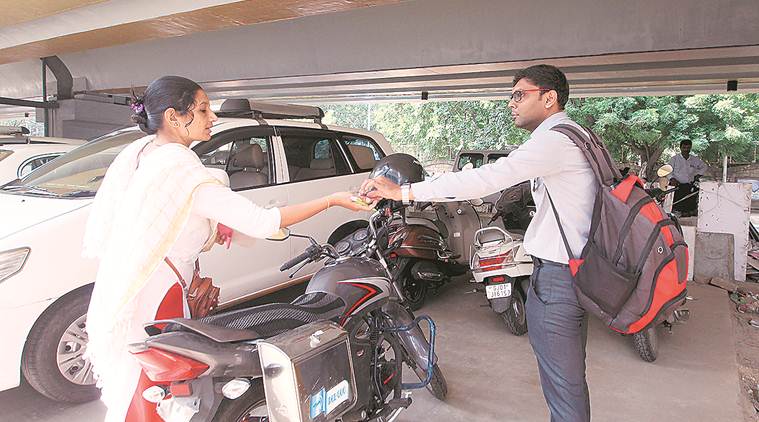Sakhi Mandals are Self Help Groups (SHGs) consisting of women from underprivileged sections of the society in different wards of the AMC.
In a unique initiative aimed at empowerment, underprivileged women from the Sakhi Mandals of Ahmedabad have been operating the Ahmedabad Municipal Corporation’s (AMC) Pay & Park facility at several locations in the city. Women are in charge of seven such facilities as of now and every facility earns the concerned Mandal roughly Rs 10,000 per month.
Sakhi Mandals are Self Help Groups (SHGs) consisting of women from underprivileged sections of the society in different wards of the AMC.
Collecting parking fees might be an unusual territory for these women but it is being done under an initiative of AMC’s Urban Community Development (UCD) department and it is part of the National Urban Livelihood Mission (NUHM) — a scheme of the Union government.
The initiative, floated around three years ago, is now proving to be a catalyst for economic empowerment of these women of Sakhi Mandals. Director of UCD department Yogesh Maitrak says the concept is based on a model presented by Bangladesh-based economist and social entrepreneur Muhammad Yunus.
In the last three years, Sakhi Mandals have collected nearly Rs 1 crore in parking fees. Dinesh Dabhi, who works for the UCD department says the nature of women as painstaking workers who generally do not indulge in addiction (like smoking, chewing tobacco etc.) make them more suitable for the job than men. “Men would loiter around on one pretext or the other…which means they are less vigilant in collecting parking fees”.
Prabhaben Makwana is one of the women who is managing the Pay & Park facility. “One of the major challenges is an altercation with someone who is not ready to pay the parking fee,” says Makwana. But she has a solution. “When rowdies misbehave we have been instructed to either lock their vehicles or to get it towed away by cranes. Also, we have to be alert throughout the working hours (8 am to 2 pm and 2 pm to 8 pm) to ensure that maximum collection takes place,” she says.
Source: Read Full Article


